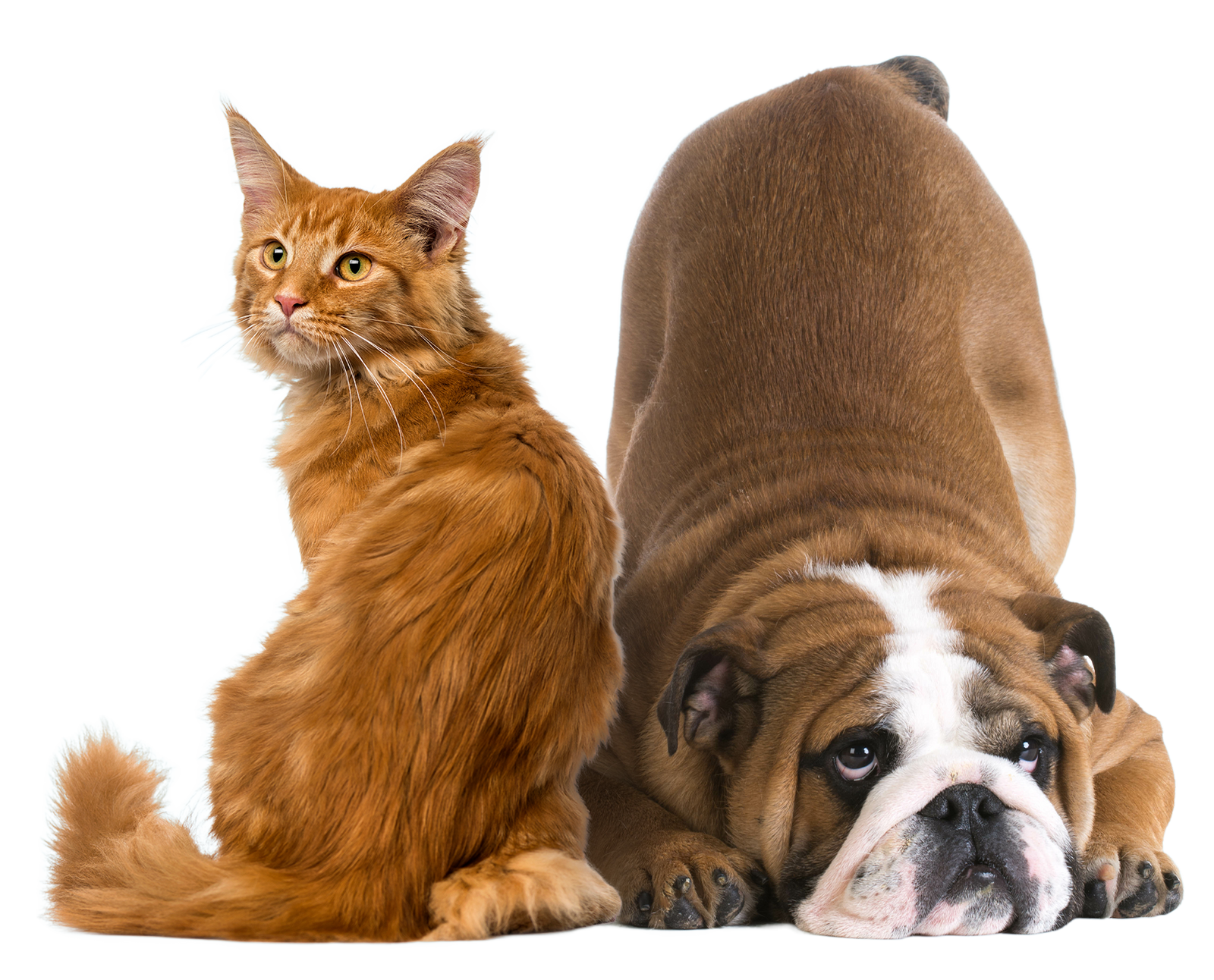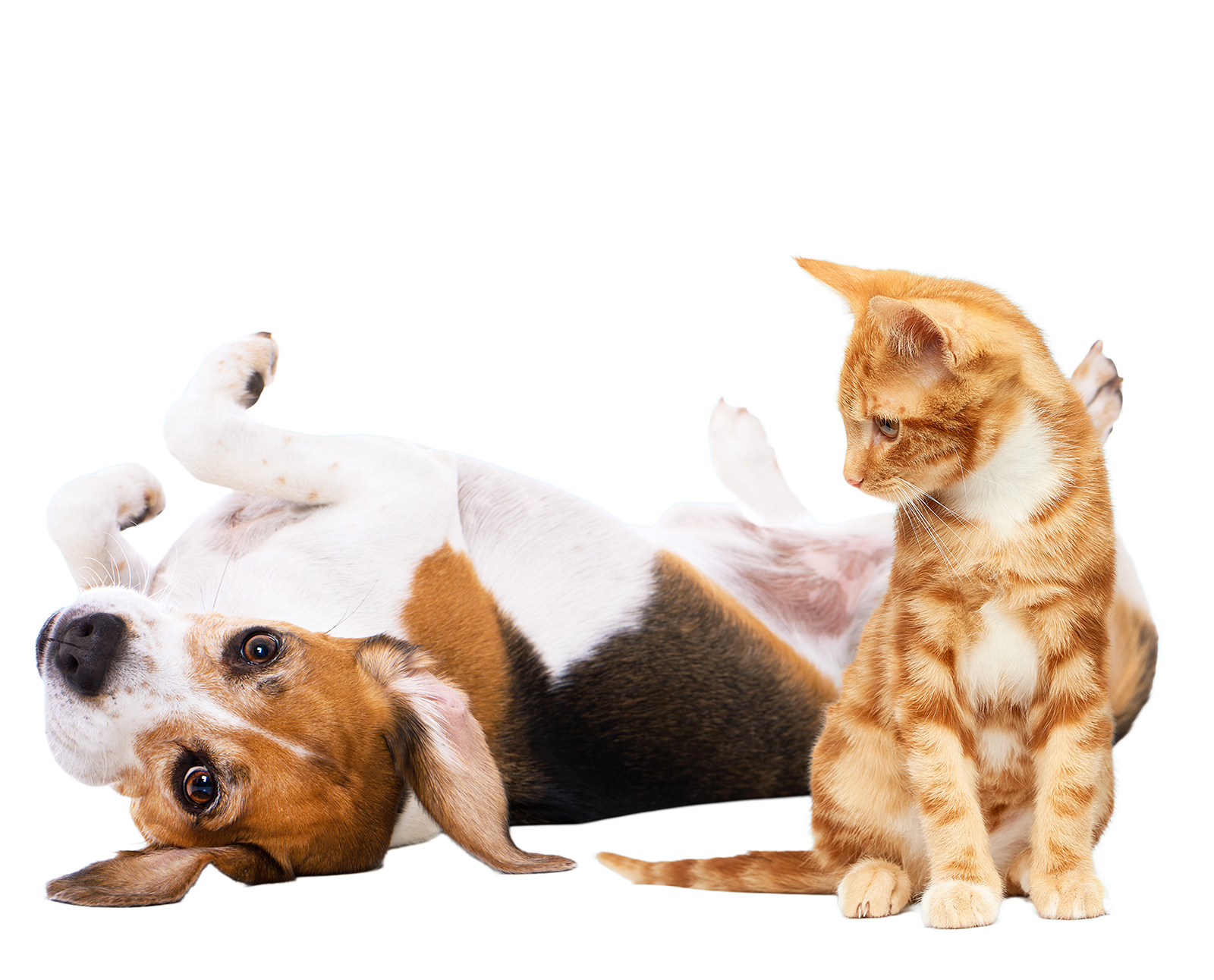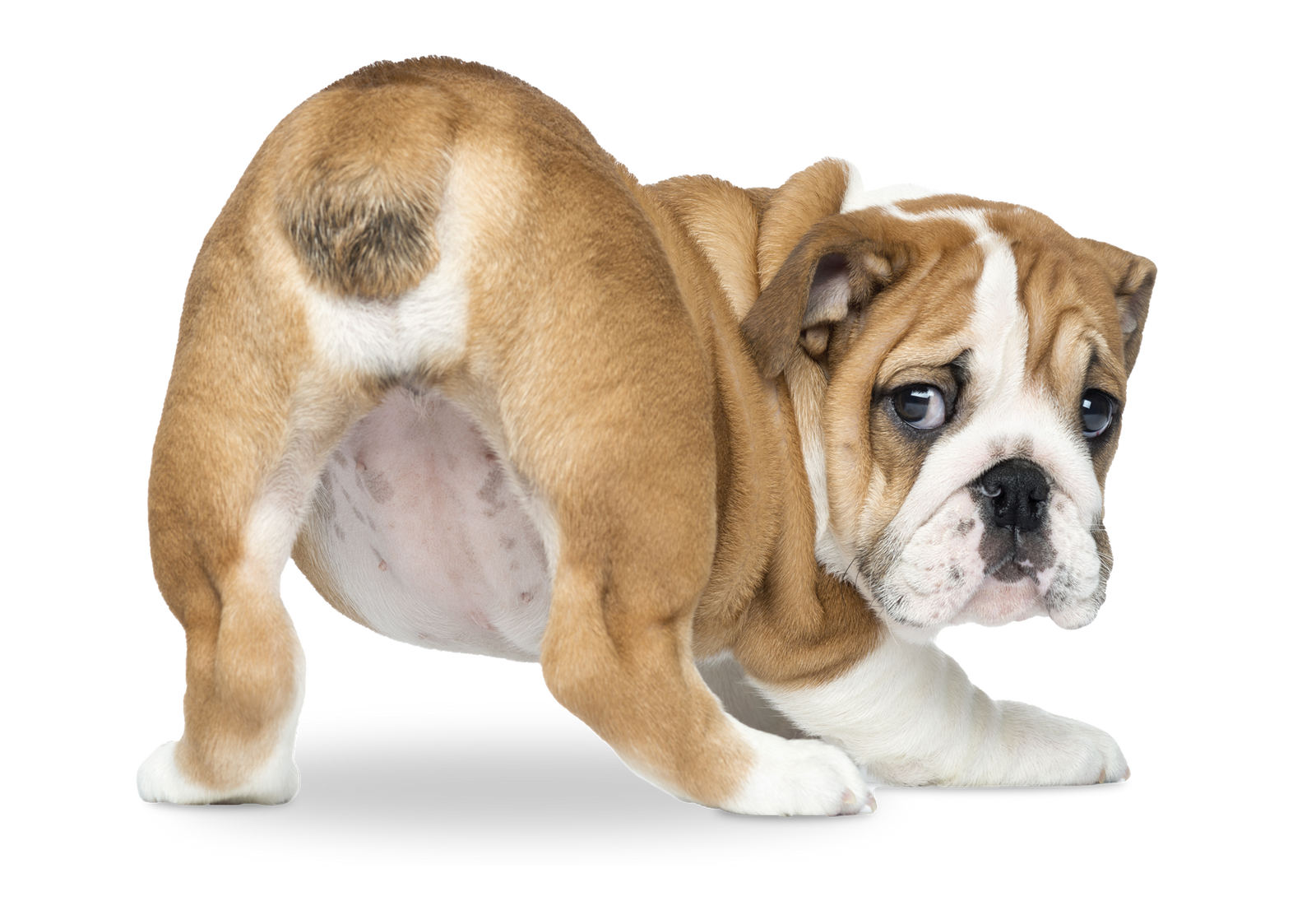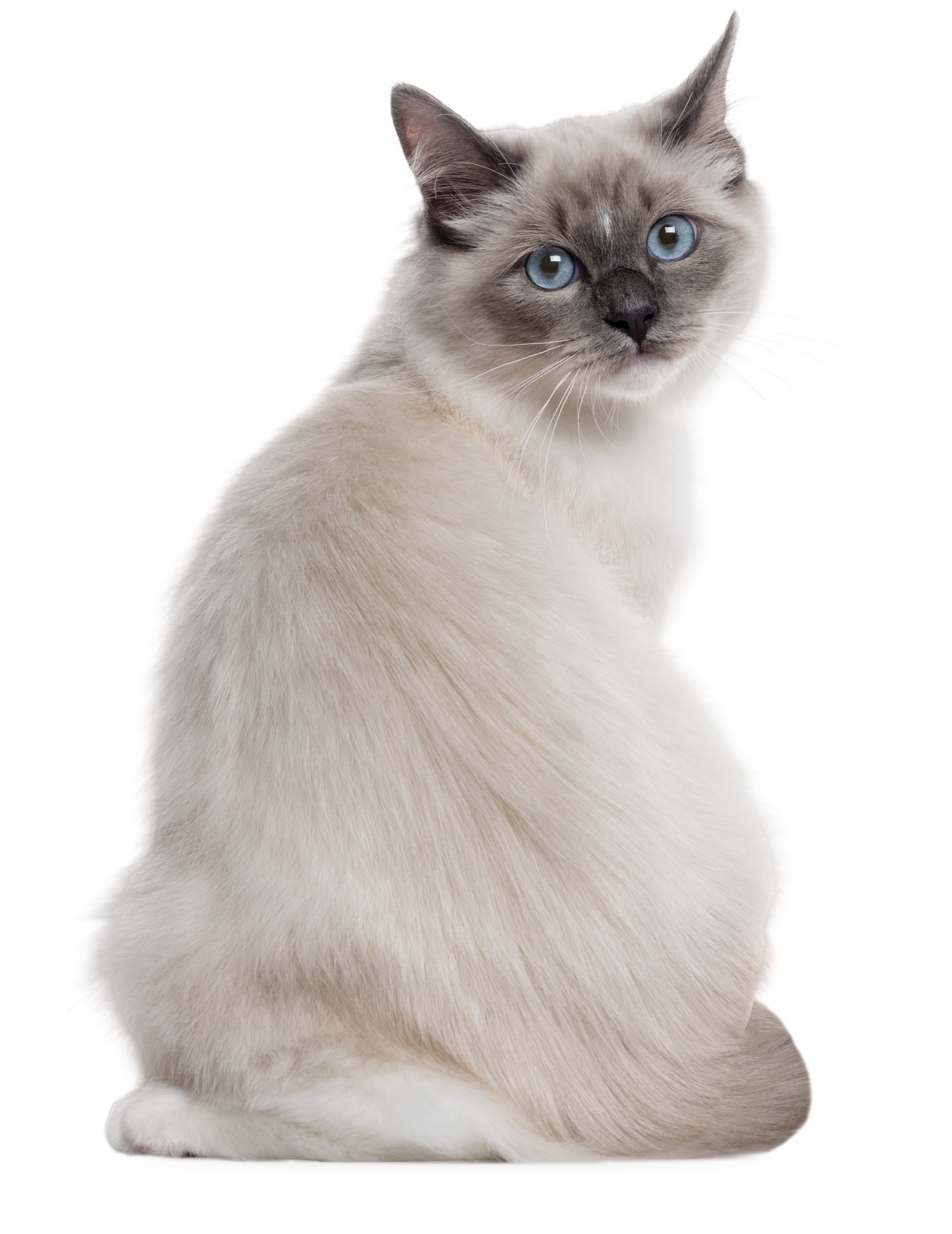Why Does My Dog Have Watery Poop?
Although dogs cannot talk to us, they can let us know when something is wrong with changes to their stool!

What causes watery poop in dogs?
There are many factors that can lead to your dog suffering from watery poop. Diarrhea itself is not an illness, but rather a sign of an underlying health issue.
Recent diet changes
One of the most common causes of watery dog poop is a recent change in diet. It may take several days for your dog’s digestive system to adjust to a new food. To help your dog avoid any digestive discomfort, slowly introduce new food a little at a time. Over a period of 5-7 days, start by mixing the new food in with the current food until the old food as been completely transitioned out.
Poor diet
It is no surprise that most dogs enjoy eating just about anything they can get their paws on- even things they shouldn’t. A diet based on processed chemicals, high sugar/ salt content, and fatty foods are all things that can absent the balance of your dog’s digestive system. If a dog gets into the garbage can, this could cause them to have an upset stomach as well.
Food Allergies
Alike humans, dogs commonly experience food intolerance. A food allergy can lead to your pet having an upset stomach, watery stool, and gas.
Parasites
While loose or watery stool is usually caused by something minor, parasites are a bit more serious. If you believe your dog may have a parasite, you should contact your veterinarian as soon as possible to find the correct treatment method.
Anxiety/ Stress
Similar to people, dogs can experience stress and anxiety. Stress can be directly linked to irregular bowel movements which could consist of constipation or loose stool.
New medication/ Supplements
It is not unusual for pets to get mild stomach upset when starting any new food, treat, medication, or supplement. Introducing any of these things into your dog’s diet can cause temporary stomach issues.
Dietary Indiscretion
Dietary indiscretion is the tendency for animals to feed on unusual items, or undergo drastic changes in feeding behavior. Eating things such as; garbage, sticks, or foreign body objects can lead to your dog having watery stool.
Bacterial Overgrowth
Overgrowth or imbalance of harmful bacteria in the gastrointestinal tract.
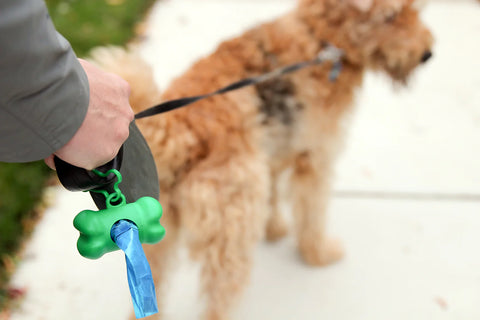
How to prevent watery dog poop in dogs
What Your Dog's Poop Can Tell You
As mentioned before, dogs are unable to talk and tell their owners when something is wrong. However, a lot can be learned from their poop! Loose or watery stool alone is not a sickness but rather an alert that there may be an underlying issue.
HOW TO PREVENT WATERY STOOL
An effective way to treat/ prevent diarrhea is by adding a digestive support supplement to your dog’s daily diet. A probiotic taken in conjunction with a fiber-based supplement will not only help to regulate and aid in gut health but will also modulate the immune system, inhibit the growth and activity of harmful bacteria, and support brain function.
Probiotics and fiber supplements for dogs can be helpful for supporting complete gut health and healthy bowel movements. Probiotics are safe to give to pets daily or when they're having tummy problems. They can help shorten occurrences of diarrhea and they are important to give if your pet is on antibiotics or steroids. Both antibiotics and steroids can kill the healthy bacteria in your pet's gut.
Many probiotics marketed towards pets lack the correct strains of probiotics. Profivex , however, contains five of the most beneficial strains for dogs and cats:
- Bifidobacterium bifidum
- Enterococcus faecium
- Lactobacillus acidophilus
- Lactobacillus Plantarum
- Streptococcus thermophilus


